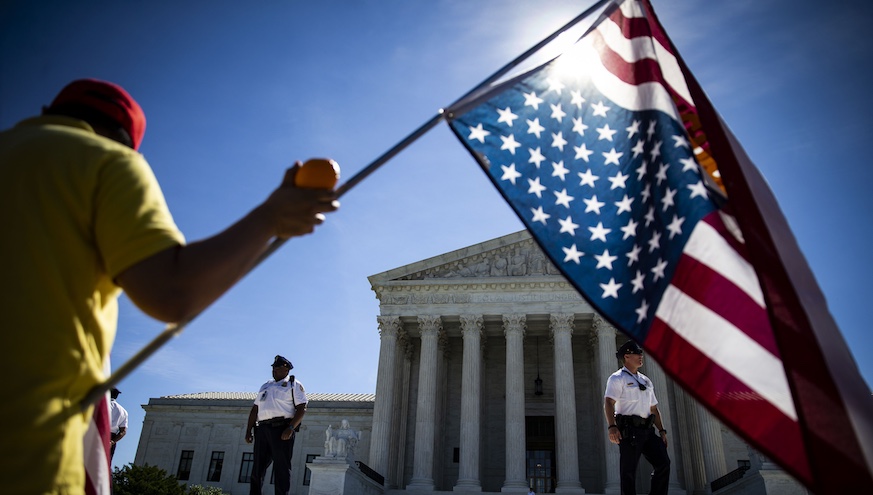Are you proud to be an American? When I was a child, this would have been largely a rhetorical question. Of course, we were proud. Living in the backwash of the 1950s, which was itself the backwash of World War II, we wallowed in a deep sense that the United States had defended the world from bitter despotism. The American Dream was the reward: a house, a picket fence, 2.5 kids, a dog in the yard and a DeSoto in the garage. What was there not to like? I mean, as long as you weren’t female, black, gay, or, well…you get the point.
But these are different days. After decades of boom and bust, we’ve watched the gap between the haves and have-nots widen into a chasm. Debates rage about race, justice, law enforcement, education, drug rights, religion, sexual identity, freedom, and opportunity.
So perhaps it is no surprise, that a new poll released by Gallup this week shows fewer people saying they are proud to be American; less than three-quarters in fact, which is some six points lower than it was a couple of years ago.
Our recent forays into foreign wars and our treatment of minorities seem to rank pretty far up as primary reasons for folks going negative on the issue. I imagine the Trump effect is playing a role too, although he’s not the country – he’s just the president.
But I suspect the deepest, unsaid reason is simply that many of us are conflicted over what it means to be patriotic now. If you support the idea of America, does that mean you support the administration? Does it mean you are falling in line with current policies on everything from gun rights to immigration? If you say you are patriotic, does that mean you are pledging allegiance to the crippled two-party system?
In short, when someone asks if you are patriotic, you may hear: “Do I believe in the direction the country is going?” or “Do I believe in the ideals upon which the country is built?” And which question you hear, makes all the difference.


















